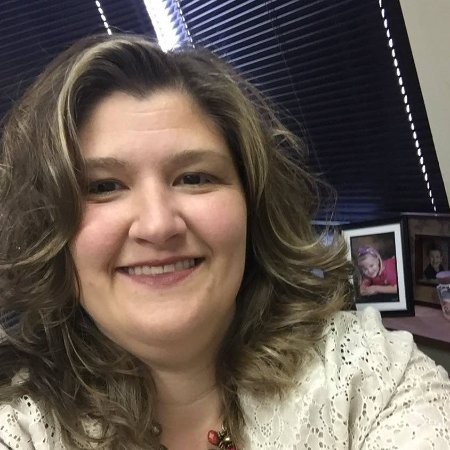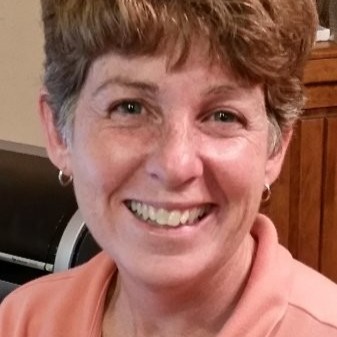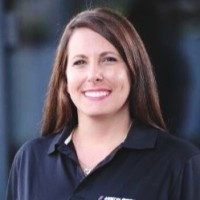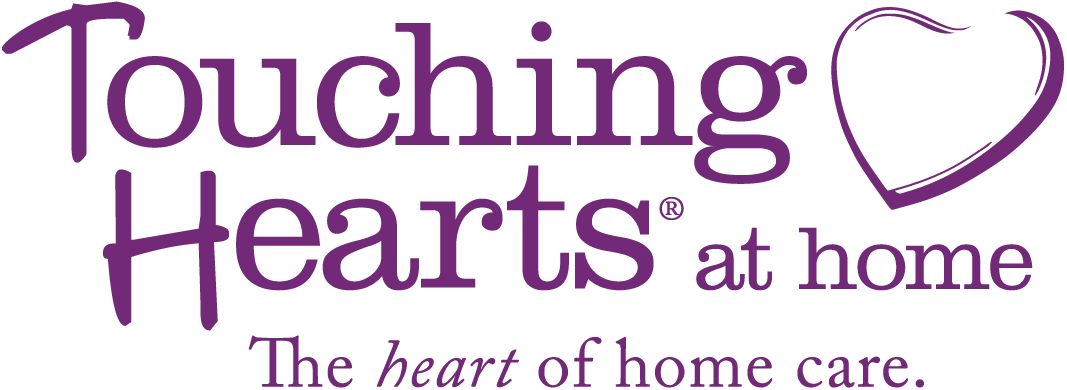At CareAcademy, our team members are passionate about making a difference in the lives of caregivers and […]
The home health care sector is projected to add about 1.2 million jobs by the year 2030, which makes it one of the fastest growing occupations. Yet many home health and home care agencies are struggling with caregiver recruitment. To keep up with demand, agencies will need to rethink their strategies for finding and attracting top talent.
CareAcademy recently reached out to 20 home care and home health agency leaders and managers to ask about their strategies for caregiver recruitment. We’ll share their full responses at the end of this post. But first, let’s take a high-level look at recruitment challenges and some common approaches to improving recruitment.
Caregiver Recruitment Challenges
Several factors may explain why home care agencies have difficulty finding workers. The two most notable challenges are:
Competition for workers
Home care agencies aren’t just competing with each other — they’re also competing with companies like Amazon, Target, and McDonald’s. These large corporations may be able to offer better pay and benefits for entry-level workers.
Lack of qualified applicants
Agencies that are in need of nursing staff may have difficulty finding employees, due to an ongoing nursing shortage. And some applicants may lack basic qualifications such as a high school diploma or CPR certification.
“While recruiting in today's environment can prove difficult, it is imperative that home care agencies actually increase their expectations for whom they will allow to join their team and avoid the temptation to lower one's standards just to ‘fill the shifts’.” — Allen Serfas, President & Cofounder, Assistance Home Care
Caregiver Recruitment Ideas
As our home care agency experts will reveal further into this blog post, a combination of recruitment strategies may be the best way to find the right candidates.
Use multiple platforms
Jobseekers may be looking at several different online job boards, so agencies might have better luck finding workers if they post across several platforms, such as Indeed, Monster, CareAsOne, and myCNA jobs. Agencies can also share job listings on their Facebook business profiles.
“We scour the internet on nearly every platform to discover our talent.” — Susan Dost, CEO, Sheridan In Home Care
Hire a full-time recruiter
Small home care agencies that are hoping to scale slowly may not want to hire a full-time recruiter; however, agencies that are in a pattern of struggling to fill positions and retain workers should consider hiring a recruiter. It’s a major expense, but one that can offer big returns, in terms of qualified new hires.
Participate in career fairs
Job fairs sponsored by community colleges or trade schools can give agencies access to people who are interested in a career change. Having a presence at a job fair allows agencies to explain the value of their work, as well as collect contact information from potential candidates.
Connect with immigrants
Immigrants account for about 25% of the direct care workforce, so connecting with immigrant populations may be a way to find workers. Faith-based and human service agencies, ethic grocery stores, and ESL programs could be useful resources when searching for immigrant workers.
Staff a mall kiosk
Because retail jobs may attract the same entry-level applicants that home care agencies might want, a mall kiosk can be a good way to reach potential employees.
Foster word-of-mouth referrals
Happy employees are more likely to recommend their agency’s job openings, so administrators that focus on employee satisfaction may find they have a greater pool of qualified applicants for any open position. Referral bonuses may also help bring in applicants.
“Since most of the caregivers we find are done so through word of mouth, we have developed an incentive system that rewards anyone who refers a caregiver to us. They receive $50 if the person interviews and completes their application and all other paperwork. Then another $100 after 100 hours of work for the company.” — Steven Kohn, Co-owner, MCM LLC
Optimizing Job Posts
At job fairs and in-person recruiting events, home care agencies have the opportunity to talk to potential applicants and explain the benefits of employment. But most applicants find jobs online, so job listings need to be worded in a way that “sells” the openings.
Here are a few tips for improving home health care agency job listings:
Mention incentives
Describe any hiring bonuses or other financial incentives, as well as non-monetary benefits like health insurance, parental leave, and staff appreciation events.
“We offer hiring bonuses and raffles throughout the year that I promote during the initial calls.” — Leila Vizzari, Executive Director, Visiting Angels
Promote career advancement opportunities
Historically, the home health care occupation has not offered much opportunity for advancement. Agencies that allot time for training and promote from within may be more likely to attract the best candidates. Mention the specific types of training available, or any career advancement tracks within your agency.
“A Place at Home has created a career path for caregivers to advance within and we have been advertising that path and success stories through blogs, social media and job posts.” — Dustin Destafano, CEO, A Place at Home
Include employee testimonials
A jobseeker may be more inclined to apply for a position with a company that has happy employees. Including a few employee testimonials in job ads can be quite the persuasive tool.
“Successful companies understand that happy employees attract other employees who desperately want to work in a positive and team-oriented environment.” — Allen Serfas, President & Cofounder, Assistance Home Care
Improving Screening and Hiring Processes
Agencies might miss out on good applicants if they don’t have a smooth hiring process. They may also disqualify applicants based on overly rigid criteria.
These are a few ways home health care agencies can improve screening and hiring:
Respond quickly
Job applicants don’t want to wait weeks for a response to their application. Even an automated response to an application is better than no response at all.
Reevaluate screening criteria
Agencies should look at whether their screening process is too rigid or discourages applicants. For example, a person with a solid work history and genuine interest in helping others might be perfect for a home health aide role, regardless of whether they have CPR training. Hiring people with the right soft skills who are willing to learn is sometimes preferable to hiring people who have all the qualifications on paper, but aren’t emotionally invested in the job.
“At every stage of the hiring process, there are always opportunities for improvement.” — Rachel Greenberg, Director of Talent Acquisition, 24 Hour Home Care.
What the Experts Say
Now that we’ve covered some high-level strategies for caregiver recruitment, let’s take a look at what 20 home care and home health agency executives told us.
20 Execs Share Their Top Recruiting Strategies

Allen Serfas
Recruiting and retention of great caregivers is at the core of any successful home care agency. While recruiting in today's environment can prove difficult, it is imperative that home care agency's actually increase their expectations for whom they will allow to join their team and avoid the temptation to lower one's standards just to "fill the shifts".
There are a plethora of great caregivers working for other agencies who currently do not feel appreciated, supported or recognized for all that they do and are surrounded by other caregivers who do not share their same passion for caring for others. Successful companies understand that happy employees attract other employees who desperately want to work in a positive and team-oriented environment. In addition, as the data supports, we strongly believe that our existing Care Pros are our best recruiters and thus we always keep our employee referral program top of mind with our Team!
Potential candidates need to "See" and "Feel" the positive energy that's possible when everyone understands and follows the Core Values of the company. This starts with the job posting and continues with each and every interaction that they have with your company. After all, as leaders in your company, we are all in the Invisible Spotlight of our employees and they are watching our every move and are able to see first hand whether or not we are living your Core Values and holding the Team accountable for doing the same!
At the end of the day, it's important to attract those that most closely align with your company's Core Values! The values can and will become the best magnet possible for attracting incredible new team members to help your agency grow and fulfill your mission!

Chrissy Carrera
I am so grateful for them because I have advertised on all sorts of employment sites and received barely any applicants. But with my own staff, they have helped me staff our agency needs.

Karoline Silva

Steven Kohn
So the question is, what did we do to overcome the difficulties created by the pandemic and what are we doing today to keep things going in a forward direction to attract and retain the best people possible? We are very direct and honest with our staff and try to treat them with as much respect and professionalism as possible. This translates into them telling their friends and family about how we treat people. Because of this we hire many caregivers who are family members or friends of existing staff. One thing I hear a lot in interviews is that many other companies in our market (Washington, DC Metro area) don't always treat their people the best they can and this causes them to leave and look elsewhere. Without going into great detail, treating people fairly is one of our keys to successfully keeping people.
When the paycheck protection program was introduced, we took advantage of it to be sure to pay our people extra money who were not able to work and also pay those who WERE working on the frontline, with the potential to contract COVID themselves. I think our people appreciated this and it helped retain staff as well.
Since most of the caregivers we find are done so through word of mouth, we have developed an incentive system that rewards anyone who refers a caregiver to us. They receive $50 if the person interviews and completes their application and all other paperwork. Then another $100 after 100 hours of work for the company. This has worked well so far. Additionally, we are looking to hire a dedicated recruiting coordinator who understands the industry and will free us up to do more with marketing and sales.
In summary, treating people well and offering a paid incentive program (including utilizing the ppp program) have been keys for the success we've had in attracting and retaining good quality caregivers.

Tauseef Riaz
Here are the two strategies that have paid off for us in the long run:
a) Creating a professional and fair environment for the caregivers, where they are getting above-market wages, even if we have to sacrifice our profit, and treating them with the same respect and dignity we reserve for our clients.
b) Only hiring recruiters and care-coordinators who have extensive caregiving backgrounds and hence can be empathetic and supportive towards our caregivers.
These, over a period, have created a strong word-of-mouth reputation and referral pipeline for us – we only have 5-star reviews from our employees. We also have caregivers working for much larger agencies approach us regularly. We recently rebooted our business model and almost all caregivers who have worked for us in the past have approached us to rejoin.

Lara Hufford
1. Employees 2. Onboarding and Mentorship programs 3. Education Pathways 4. Implementing Training Technologies
Keep in mind, employees that have adopted your company culture are your best sales tool! Offer incentives to recruit from their inner circle, chances are if you like an employee and they exemplify your company values, they will bring more like-minded individuals. I have one caregiver that has brought me five amazing caregivers a month and continues to recruit actively for our referral bonus program.
During orientation we provide two cards that display our mission statement and core values. I tell new employees, “One card is to keep in your pocket for when they have a difficult day, take it out and read it aloud and know how important your job is, and the other card is to give to someone who does not like their job and would like to come work for a great place! Every leader can create an environment that set the tone and culture of the company from day one. I once read that a caregiver brings a company a lifetime value on average of $75,000, does your staff embrace this with every interaction? Selling is not just to clients; it applies to your caregivers.
Take out a pen and paper ask the following of your internal team:
• Why do employees want to work for our company? • When employees walk in the door, how do we make our caregivers they feel special? • Does our team orientate with everyone on the team? • Does our team explain the current wage and the pathways to advancement? • How will our team support this employee and keep open communication? • How will our team receive feedback and how do they continue to develop skills?
When our team asked the tough questions, we realized we needed more touches with our employees. We now have a resolute 90-day mentor program, which assigns a mentor and helps to bridge the gap from hire to field. We encourage our employees to let us know where they feel unconfident and offer to educate online and in person when they are struggling. We implemented through Care Academy a first training bundle online, and after orientation our staff messages them directly in CareAcademy about these resources and lets them know, we want them to succeed! We promote this in office and in our hiring ads. In our 90 day reviews we collaborate with the caregiver to decide what skills they want to develop and listen to their feedback. In our location, caregivers completed 176 certificates in three months, and as imagined client satisfaction scores improved dramatically! Implementing a new training platform has increased contact with staff and incubated highly qualified caregivers.
Current staff continually recruit job seekers because of the training we offer to others in this field. If you have an educational platform, don’t forget to allow training time for your internal staff such as Care Coordinators, nurses, and Human Resources. When is the last time they took time for both professional and personal development? Attraction is contagious and if your employees feel their best, they will attract the best! As your company grows you will need sharp leaders that grow with confidence. Remember getting your creativity flowing on the critical areas of Employees, Onboarding, Educational Pathways, and Implementing Training Technologies will create recruiting success!

Margaret Tay
These questions get the prospective caregiver talking about how they handle situations in life thus it helps to determine how they may react to varying situations in the client's home.

Rachel Greenberg
In addition to examining the hiring process from the recruiter's perspective, it's also essential to look at the applicant's experience. At 24 Hour Home Care, we refer to caregivers as our "customers". We often have our internal team take a walk in their shoes by auditing their journey from applying to offer to onboarding to understand their overall experience.
By focusing on personalizing the experience for the candidate, you can influence the applicant experience before they even apply. It starts with the word choice, length, and tone of your job postings and never ends. There are countless touchpoints during the hiring process, and by examining each one from the applicant's perspective and testing it, you can set your company apart.

Faith Jones

Aubre Phillips

Ashlee Buchanan
While recruiting will always be ever changing, Comfort Keepers has embraced the changes and is always looking for new and innovative ways to recruit!

Susan Dost

Toni Cortesi

Jeff Brown
Friends, family and personal network are also another great source.

Leila Vizzari
We also believe in promoting our Caregiving Staff, by offering various benefits and celebrations throughout the year. I will promote all these during the initial calls with our applicants.

Yvonne Nelson
Recruitment has also been interesting to me with the ability to recruit through social media platforms.

dustin distefano

Clay Conner
Before I tell you Pink's "big three," there is one item that must be in place for any of it to work: Fair compensation. From the outset 8 years ago, Commonwise set out by paying a living wage. For the markets we compete in, we are at or near the top pay rates. We also offer healthcare insurance and paid time off. Once the “fairly compensated” box is checked, the following 3-fold strategy works well: Employees need to be given mastery, sovereignty, and context with their work. Let me explain:
• Mastery. (Training) This is simply good skills training AND an investment in shift prepping. Our caregivers must feel confident in their preparedness for the demands of each client. • Sovereignty. (Empowerment) This means we give the caregiver autonomy during the shift to make decisions. While we have staff RNs who support the CG’s, we are very careful never to micromanage them – that can be dehumanizing. We try to no do anything that could inadvertently signal to caregivers, “we don’t trust you.” If a caregiver feels trusted and empowered, that can infuse their work with a certain type of joyfulness. • Context. This is simply story telling. The classic example of this (and one you have likely heard many times before) is there are three people who do the EXACT same job. One person hates their job. One person tolerates it and the last one loves their job – in fact, if they could afford to, they would do it for free. The difference? What they were told: o Person #1 – go lay bricks. o Person #2 – go lay bricks, we are building something important. o Person #3 – we are building a cathedral and we need you to lay bricks here where the sacristy will be. Though this will likely never be completed in our lifetimes this building should bring peace and solace to many.
At the bottom of our recruiting landing page, we've placed a short video that starts the conversation around the "Context" of caregiving as a vocation. We create materials for our caregivers to understand that not only does their work have meaning, but that caregiving is truly a noble calling. We say that “Caring for others is life’s highest and best calling.”
For us, the proof all this extra effort is working is our high retention rates. Solid retention helps us escape the "churn and burn" problem too prevalent in our industry. Investing in employee happiness (aka retention) sets in motion its own virtues cycle. Caregivers come to us because they have heard how happy people are here.

Jamie Cabral







